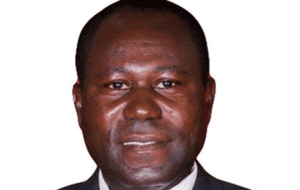COCOBOD CEO tells farmers to adopt organic cocoa production

Mr Joseph Boahen Aidoo, the Chief Executive Officer of the Ghana Cocoa Board, has urged cocoa farmers to embrace organic production practices for the long-term sustainability of the cocoa industry.
According to him, the future of the cocoa industry relied on the use of organic production practices, as they promoted a healthier product, increased yields and also contributed to environmental friendliness.
Mr Aidoo called on the media to promote and encourage farmers to use poultry manure, as it stabilized the soil without harming the environment.
Mr Aidoo gave this advice during a media engagement in Sunyani, following his four-day visit to some cocoa farms and districts in the Bono, Bono East, and Ahafo regions.
The visit was to gather information, make corrections on some farming practices and ensure the recovery and long-term sustainability of the cocoa industry.
During his four-day visit, he visited cocoa farms and interacted with cocoa farmers in various areas, including Bechem Cocoa District, Duayaw Nkwanta, Techiman, Bamreh, Sunyani Cocoa District, Goaso, Sankore, Larbikrom, and Mim.
Mr Aidoo explained, COCOBOD had implemented numerous interventions and productivity enhancement programmes over the years, such as hand pollination and pruning, saying these initiatives were aimed at achieving the mission of a sustainable cocoa industry.
He said since 2017, when these interventions were introduced, they had proven to be effective in cocoa growing areas, resulting in significant improvements in farmers’ production.
During his visit to the three regions, Mr Aidoo said he noticed some farmers in other parts of the country were able to produce 20 bags or more per acre, not a single farmer admitted to achieving such high yields, attributing their failure to not following productivity enhancement programmes.
In light of this, Mr Aidoo emphasised the importance of farmers cultivating the practice of pruning, saying implementing pruning techniques meant the cocoa trees would require fewer chemicals.
Mr Aidoo observed a competition between cocoa and cashew farming in the three regions, with some cocoa farmers converting their farms to cashew production, however, he was pleased to note that many of the farmers were now returning to cocoa farming.
He explained that cocoa remained a vital component of the country’s national economy and it was crucial to sustain its growth to ensure its continued contribution as a renewable source of income for the country.
Mr Aidoo expressed satisfaction at the ongoing rehabilitation efforts in the three regions stating that since the introduction of the recovery programme in 2017, aimed at combating the cocoa swollen shoot virus disease, a survey conducted revealed that 17 percent of cocoa land area nationwide had been affected by the disease.
Mr Aidoo emphasised that COCOBOD remained committed to recovering all the lost farms and promoting the long-term sustainability of cocoa productivity.
Source: GNA
